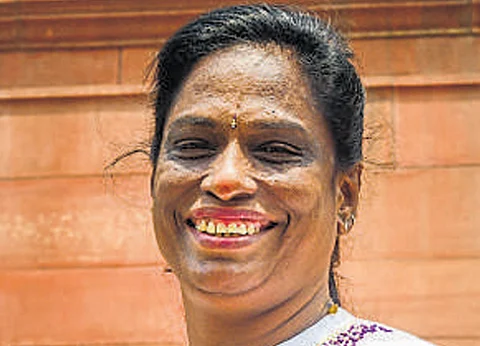

IOA president PT Usha said the Sports Bill will usher in transparency and accountability amongst national federations.
PTI
The National Sports Governance Bill was on Tuesday passed by the Parliament, with Rajya Sabha giving its nod a mere 24 hours after Lok Sabha, marking a historic first for India’s sports administration that is now set to be regulated by a national board and have its own dispute resolution mechanism.
The National Anti-Doping (Amendment) Bill, which reinforces NADA’s autonomy as required by the World Anti-Doping Agency, was also passed by the Parliament. The two bills now await presidential assent to be notified as acts.
Minister of Youth Affairs and Sports Mansukh Mandaviya moved the bills for consideration and passage in the Upper House at 3 pm.
“In 20 countries, there is sports law. I request the Rajya Sabha to make India the 21st country with a sports law,” Mandaviya said in his address, which was followed by a discussion that lasted over two hours.
During the discussion, BJD MP Subhashish Khuntia raised concerns about the centralisation of sports governance due to the bill. He also felt that the bill did not have clarity on the district and block-level development of athletes.
“The bill should empower, not control,” he said.
Mandaviya responded by saying that the government is only seeking to be a facilitator.
“In this bill, we are bringing transparency, not control, not interference. Government doesn’t want to control. We are being the supporters and providers of a structure,” he asserted.
Former All India Football Federation President and NCP leader Praful Patel was among the prominent voices who lauded the bill.
“It was a long-standing legislation that was required. We have had a sports code — it’s been a loose code and never stood any legal scrutiny. What is happening today is the need of the hour,” Patel said.“We are hoping to win the 2036 bid of Olympics. That itself would be a redefining moment for Indian sports. This bill is absolutely in the right direction. We need this to achieve glory that is beyond cricket. It is imperative that this bill be passed with fullest support.”
The most striking aspect of the bill is that the NSB is to create a stringent system of accountability. The NSB will have the mandate to de-recognise a national body that fails to hold elections for its Executive Committee or has committed “gross irregularities in the election procedures.”
Failure to publish annual audited accounts or “misused, misapplied or misappropriated public funds” would also be liable for action by the NSB, but it would be required to consult the concerned global body before making its move.
Another feature is the proposal for a National Sports Tribunal, which will have the powers of a civil court and decide disputes ranging from selection to election involving federations and athletes. Once instituted, the Tribunal’s decisions can only be challenged in the Supreme Court.
The bill makes some concessions on the issue of age cap for administrators by allowing those in the bracket of 70 to 75 to contest elections if the concerned international bodies’ statutes and by-laws allow for it. It is a departure from the national sports code that capped the age limit at 70.
All recognised national sports bodies would also come under the ambit of the Right to Information (RTI) Act, something that the BCCI has vehemently opposed since it is not dependent on government funding. However, the cricket board has got some leeway on that front with the government amending the bill to ensure that RTI would be applicable only on bodies that rely on government funding or support.
Another significant amendment made to the draft is the mandatory term of two tenures in the EC to be eligible for fighting NSF elections.